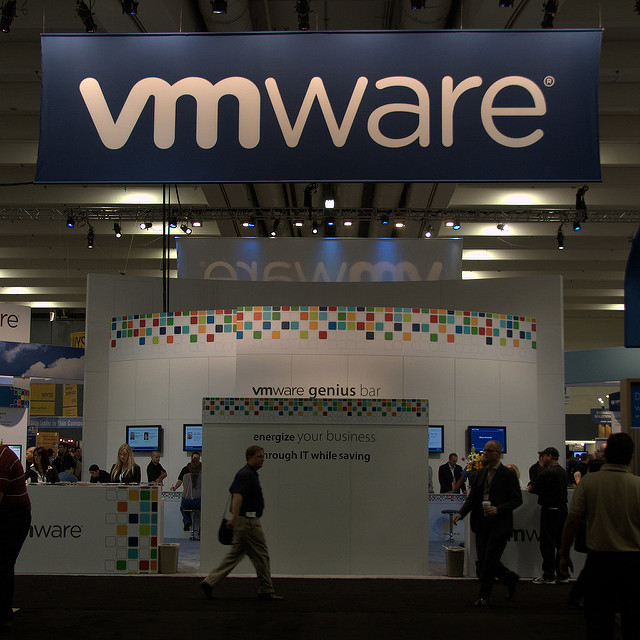 CLOUD
CLOUD
 CLOUD
CLOUD
 CLOUD
CLOUD
Virtualization giant VMware Inc. has lashed out at Microsoft Corp.’s effort to steal some of its customers away, saying it won’t provide support for those that run its software stack on the Azure cloud.
The statement follows Microsoft’s launch of the Azure Migrate service this week, which the software giant touted as an easy way to move workloads powered by VMware Inc.’s hypervisor from on-premises hardware to Microsoft’s cloud.
Microsoft made some big claims about Azure Migrate, saying it could help customers to reduce their total cost of ownership by as much as 84 percent in some situations. In addition, Microsoft said, it would soon provide a new service to help customers migrate more difficult to move workloads from VMware to its cloud.
Corey Sanders, Microsoft’s director of compute, said the Redmond-based company was readying a preview of its VMware virtualization on Azure, which is “a bare-metal solution that runs the full VMware stack on Azure hardware, co-located with other Azure services.”
The announcements were widely seen as an effort by Microsoft to muscle in on VMware’s turf, but the virtualization giant’s vice president of product development for cloud services, Ajay Patel, hit back in a blog post Wednesday. He said that VMware can neither endorse nor recommend Microsoft’s Azure virtualization solution, and will not support customers that use it.
“Microsoft’s stated intention is to enable this as an intermediary migration solution and not as a solution architected for running enterprise workloads in production,” Patel wrote.
Microsoft said at the time that its Azure Migrate and VMware virtualization on Azure offerings would be delivered “in partnership with premier VMware-certified partners,” but Patel noted that the company failed to mention who that partner is. He added that no partners had collaborated with VMware itself in engineering the new Azure service.
“This offering has been developed independent of VMware, and is neither certified nor supported by VMware,” Patel said. “Our experience has shown public cloud environments require significant joint engineering to run enterprise workloads.”
Patel was alluding to the months of work that VMware had put in with Amazon Web Services Inc. in order to enable its Vmware-on-AWS service, which he said was a “jointly architected, and fully tested and validated” cloud service.
“Hence, we cannot endorse an unsupported and non-engineered solution that isn’t optimized for the VMware stack,” Patel added.
Support our mission to keep content open and free by engaging with theCUBE community. Join theCUBE’s Alumni Trust Network, where technology leaders connect, share intelligence and create opportunities.
Founded by tech visionaries John Furrier and Dave Vellante, SiliconANGLE Media has built a dynamic ecosystem of industry-leading digital media brands that reach 15+ million elite tech professionals. Our new proprietary theCUBE AI Video Cloud is breaking ground in audience interaction, leveraging theCUBEai.com neural network to help technology companies make data-driven decisions and stay at the forefront of industry conversations.